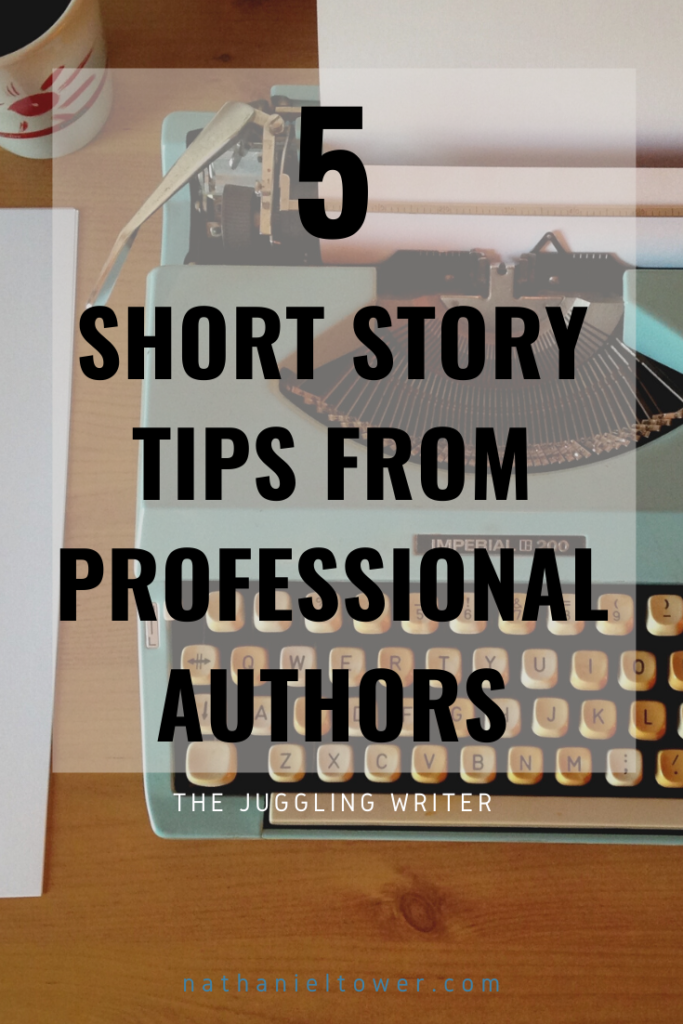Last Updated on September 29, 2021 by Nathaniel Tower
Undeniably, short stories are difficult to master. After all, while a novel has enough room for you to write expansively, a short story only affords you around 1,000 to 10,000 words with which to introduce your world, tell your tale, and wrap it up. As prolific author and now fellow Minnesotan Neil Gaiman puts it, people who read short stories should “make [it] to the far side of the universe and still be back in time for dinner.”
Thankfully, we can always look to the greats for inspiration. So, below are a few of their tips that might come in handy when writing your next short story.
1. Ray Bradbury: “Quantity creates quality.”
Take it from Ray Bradbury, one of the greatest writers of the 20th century with over 600 short stories to his name. He challenges you to write — and write often. The logic is simple: if you write 52 short stories in a year, you’ll write at least one that’s good. To start, try picking three random words from a dictionary and writing a story that links them together. This will help you improve your word association skills, too, which Bradbury believes every fiction writer should possess.
2. Kurt Vonnegut: “Start as close to the end as possible.”
If you’re having a hard time making your plot short-form, the minimalist Kurt Vonnegut recommends starting your story as close to the climax as you can. Begin by giving your readers as much information as you can to catch them up. From there, make sure every sentence either reveals more about your characters or moves the plot along. If you need an example, check out Welcome to the Monkey House, one of his most highly-acclaimed short story collections of all-time.
3. Edith Wharton: “Make your characters relatable.”
For writers that are having difficulty fleshing out believable characters, look no further than Edith Wharton. In her book The Writing of Fiction – The Classic Guide to the Art of the Short Story and the Novel, Wharton demonstrates exactly why she was chosen as the first-ever woman to win the Pulitzer Prize for Fiction. She recommends giving characters solid motivations based on your plot’s conflict and making at least one your reader can root for. Putting your characters through hardships, for example, makes them realistic. This creates the illusion that they can be someone who actually lives in our world.
4. Nathaniel Tower: “Trim the fat.”
In a previous blog post entitled How to Write a Shorter, Better, More Publishable Story, we went over some ways to make those painful cuts with confidence. Some tips include getting rid of subplots that take away from your main conflict or removing sections that depict needlessly long character development arcs. It’s also possible to rephrase your sentences using fewer words, and without losing any impact.
5. Joyce Carol Oates: “Be your own critic.”
2) The first sentence can be written only after the last sentence has been written. FIRST DRAFTS ARE HELL. FINAL DRAFTS, PARADISE.
— Joyce Carol Oates (@JoyceCarolOates) July 18, 2013
As a fiction author, it’s important to write for yourself — to choose a topic that excites you, and end the story your way. After all, you can’t please every reader. However, all-around author Joyce Carol Oates emphasizes that you need to be your own critic, too: you know yourself the best, so you need to hold yourself to the highest standards possible. Do your character’s motivations make sense? Did you leave any plot holes unresolved? By being critical, you can produce better work. Also, while your first draft will always be rough, you can always go back and revise, so keep going!
What are some of your favorite short story writing tips from professional authors? Share your thoughts in the comments.

